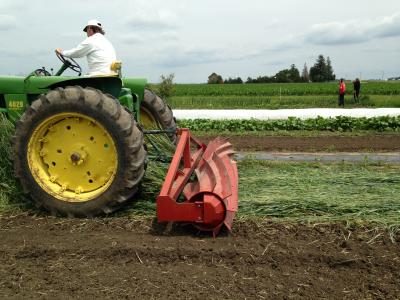AMES, Iowa – Organic producers looking to increase benefits from a no-till system now have a guidebook to walk them through the process.
The Iowa State University Extension and Outreach publication “Organic No-Till Production” provides a “how-to” for organic no-till production in Iowa, which utilizes a rolled down cover crop to facilitate weed suppression, with the commercial crop drilled, planted or transplanted into the rolled mulch. The publication offers an overview of different rolling/crimping systems, an economic outline of costs and returns, and provides producers with the resources they need to secure potential funding from the USDA-NRCS cost-share programs supporting organic no-till.
More producers are investigating organic no-till production in Iowa, with best results coming from the rolled rye/soybean system. In order for the system to work successfully, the amount of cover crop biomass is extremely important. Research recommends at least 8,000 lbs. per acre of rolled rye biomass to create a thick enough mulch to block sunlight to the weeds, allowing the crops to better compete with the weeds.
“We see great benefits from organic no-till in relation to soil quality improvements,” said Kathleen Delate, organic specialist with Iowa State University Extension and Outreach. “The challenge remains to ensure adequate rolled rye biomass to effect ample weed management to obtain competitive yields.”






